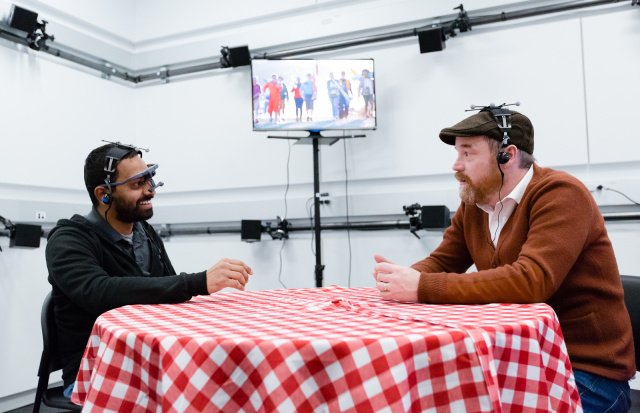Facebook has been developing its own AR glasses for quite a while now, and a new report from its researchers reveal that the device could feature advanced audio technology. Members of the Facebook Reality Labs (FRL) Research audio team detail their work on two technologies in particular. One of the, which the team is calling “Perceptual Superpowers,” will allow you to enhance certain sounds and dim background noise in the real world. It will, for instance, give you a way clearly hear someone sitting across you in a noisy restaurant.
The technology can do that by using the glasses’ multiple microphones to capture sounds around you. It will then take note of your head and eye movements to figure out the sounds you actually want to hear and the ones you want filter out.
While the researchers aren’t specifically developing the technology for the hard of hearing, the glasses could help those who’d rather not use hearing aids in social situations.
Thomas Lunner, one of the researchers who also worked on the world’s first digital hearing aid, said: “By putting hearing impaired people on par with people with normal hearing, we could help them become more socially engaged. This resonates very well with Facebook’s mission in the sense that hearing loss often keeps people away from social situations.”
The FRL Research audio team is also developing “Audio Presence,” which will recreate how sounds travel and bounce around in the real world for AR and VR. It would make audio from the glasses sound realistic, like you’re actually listening to what’s happening around you instead of something that’s coming from a device.
The researchers are working on several elements to make that happen, including making sure that volume is different for each ear and that the audio sounds like it’s bouncing off the walls.
They’re also hoping to find a way for sounds to change based on the shape of your ears like they do in the real world. Ultimately, the hope is that the technology can make you forget you’re separated by distance when you’re on a video or a phone call.















